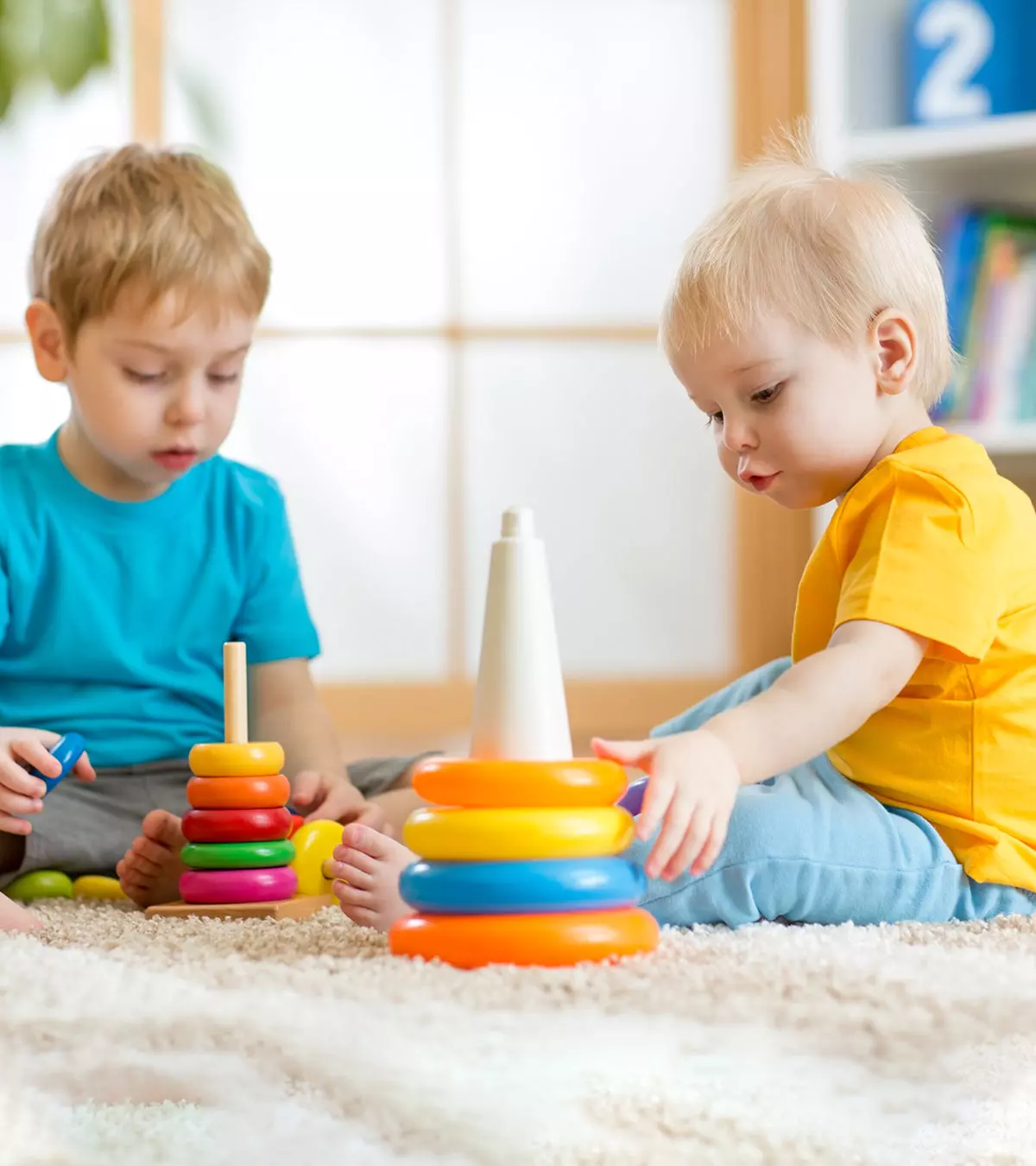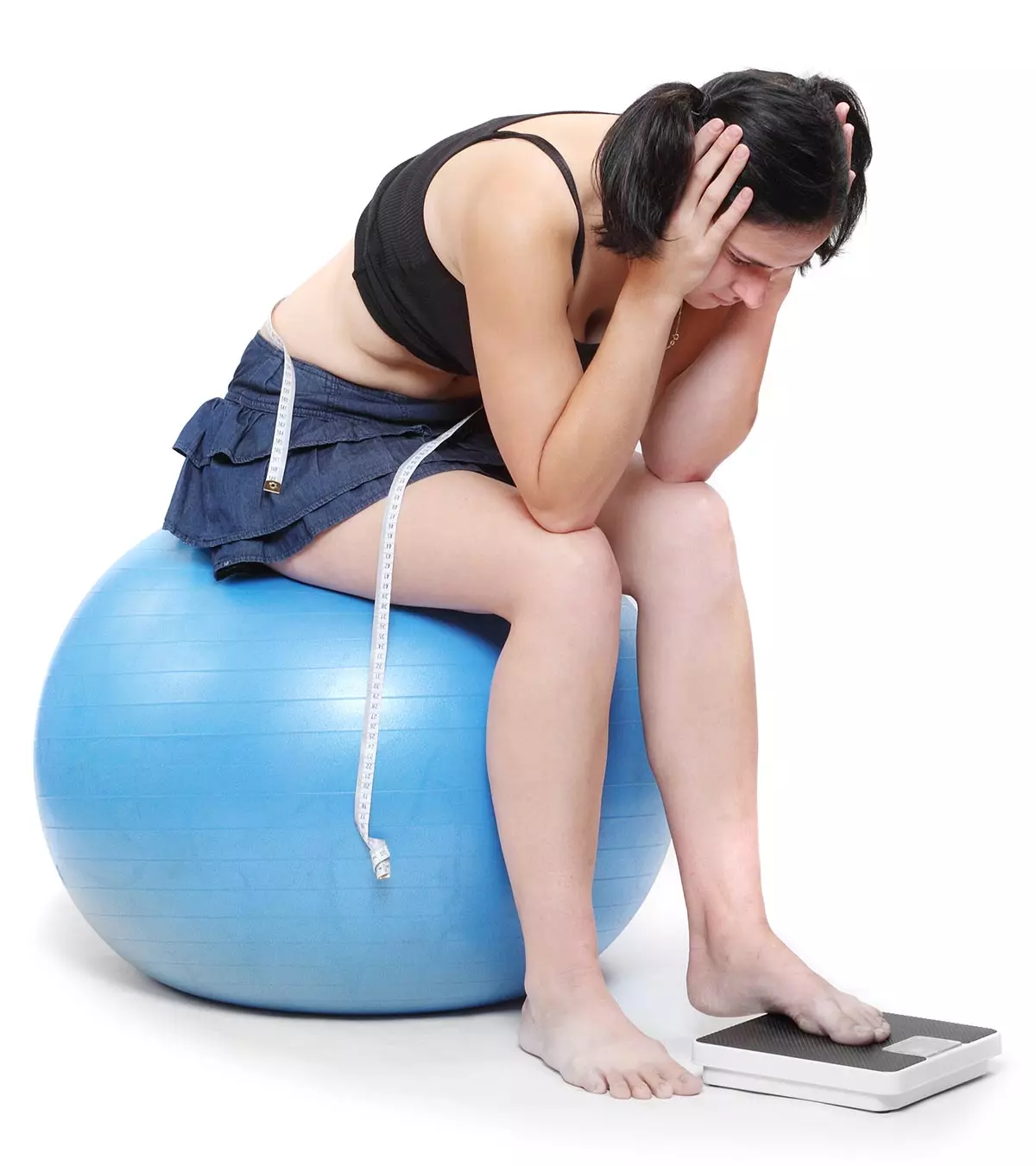
Image: Shutterstock
Given the increased physical and mental stress with growing age, self-care for teens is more than just a trend. During teenage years, your child goes through substantial changes in their lives—from bodily and hormonal shifts to stressing over their education and personal life. Therefore, they need to learn how to prioritize their health amidst these stresses.

While there is a lot of awareness regarding teenage physical and mental health, there isn’t much about teenage self-care and its importance. Read this post to know why self-care is essential for teens and get some useful self-care tips.
Key Pointers
- Self-care involves activities that help refresh and rejuvenate.
- Academic competition, social and personal issues, stress, and anxiety can impact teens.
- Regular self-care is essential for teens to cope, prevent burnout, and protect mental health.
- Practicing gratitude, finding joy in small things, and living in the moment can help teens.
What Is Self-Care?
What’s the first thing that comes to your mind when you hear the word ‘self-care? Does it conjure up pictures of a day at the salon or spa or a bubble bath at home? Self-care entails more than these. It encompasses activities, practices, and healthy habits for teens that reduce the stress and strain on the mind and body and make you feel happy and at peace with yourself (1).
Self-care is often confused with self-indulgence and can mean different things for different people. For some, it may mean taking an uninterrupted nap in the afternoon, while for others, it might mean taking a long shower, reading their favorite book all day long, or just enjoying a meal by themselves (2).
Although the essence of self-care is doing something that makes you feel refreshed, it doesn’t always involve doing things that are in your comfort zone.
The things you do as part of self-care may not always be relaxing but may be aimed at stress management for situations in the near future. For example, it can include doctor visits or completing your chores to avoid stressful situations later. This is particularly true for today’s teens, who fall under one of the most stressed, anxious, and depressed segments of society (3).
Why Is Self-Care Important?
While awareness about mental health issues among teens is gaining momentum, little is known about the importance of self-care in this age group. Teenagers today have their own set of struggles–academics; increased competition; pressure to perform well; participation in school, community, family, and religious events; worries about their future, appearance, and social standing; relationship issues, etc. During the COVID-19 lockdown, they faced new stressors, such as the inability to socialize with peers, excess parental supervision, and academic struggles due to online learning. These issues can affect their mental health and trigger behavioral problems and even suicidal tendencies among teens (4).
According to a Pew Research Center survey, 61 percent of teens reported feeling academically stressed, while 21 percent reported feeling pressured to be good at sports. Additionally, 29 percent and 28 percent of teens felt stressed about looking good and fit in socially, respectively.
One of the best ways for teens to learn coping skills to deal with difficult situations is by practicing regular self-care. Self-care can help prevent burnout, safeguard their mental health and well-being, reduce self-doubt and frustrations, build resilience, and increase their happiness. And what’s more, engaging in self-care is proven to reduce stroke, cancer, and heart disease (5).
Benefits Of Self-Care For Teens
Self care may be beneficial for teens as they would (6):
- Learn to recognize their physical and emotional needs through self-care practices.
- Acquire the skill to respond to their needs positively.
- Learn independence and understand how to care for their mental, physical, and social needs.
- Cultivate healthy habits that will benefit them throughout their lives.
15 Self-Care Tips For Teens
Here are some practical and effective self-care tips for teens that they can use to foster their physical, mental, and emotional health (7).
1. Build self-assurance
People may expect lots from your teen, but your child may not always have realistic expectations from themselves. At the end of the day, they must always believe they have done enough and the best they could. This self-assurance is a healthy self-care habit to inculcate.
2. Try to see the reality
Teens can easily be swayed by all they see on TV, the Internet, and social media. Teach them not to believe everything they see and hear but find the underlying truth. Seeing the reality of life is a clever way of promoting self-care during the teenage years.
3. Try not to be too hard on yourself
It is common for teens to beat themselves up when they don’t achieve what they want, their relationship ends, or when they have a bad day. Remind them to practice self-compassion and not to be too hard on themselves. This includes
- Not comparing themselves to others.
- Not striving for perfection.
- Realizing that everyone has their bad days.
4. Have a few but true friendships
Adolescence is one of the most memorable times in the life of an individual. Teens usually have lots of friends. However, it is essential for them to have true friends who form a strong support and provide a safety net for them to fall back upon. Encourage them to find friends who are their strongest critics and yet stand up for them in their darkest times.
5. Practice positive self-talk
Positive self-talk can be motivating and help you improve your shortcomings and become a better version of yourself. Building confidence in teenagers is essential to help them succeed in life. Teach your child never to put themselves down or engage in negative self-talk, and help them recognize the good things about themselves and feel confident in their abilities. Encourage them to talk to themselves as they would to their best friend and practice self-reflection.
6. Find happiness in small things
Teenagers are in a constant state of flux. It is typical for them to equate happiness with great achievements, events, or wealth. However, they must understand that happiness lies in the small things in life, such as listening to music, cracking a joke with a friend, or enjoying the first snowfall of the year.
 Quick tip
Quick tip7. Practice gratitude
Taking time to appreciate the little things in life and being thankful for them is crucial for teens to recognize how blessed they are. When you acknowledge the things you have, you are welcoming joy into your life. This is a good self-care habit for teens to develop.
8. Live in the moment
It is normal for teens to feel frustrated about things around them or missed opportunities and spend a great deal of their time brooding over them. However, as part of self-care, they must learn how to savor the present moments in life and practice self-awareness rather than focus excessively on past failures or future uncertainties.
9. Limit social media use
Social media has immense power, and for a generation born after the Internet boom, it is but natural to find them spending a great deal of their time on various portals. However, social media has its evils too. Teens begin comparing their lives with those of their friends and other people as portrayed on social media platforms. Sometimes, the information on these platforms can be worrying and stressful, affecting self-esteem in teens and causing anxiety, too. Teach your teen to limit their social media use to just an hour or a couple of hours a day and practice mindfulness instead.
10. Have a hobby or two
Hobbies have a calming, relaxing effect on one’s mind and body. A great way of practicing self-care is pursuing a hobby. It could be anything that de-stresses them, such as reading books, playing an instrument, participating in a sport, creating art or craft, coding, or dancing. Pursuing a hobby can allow them to balance their social and personal life.
A 15-year-old blogger shares the importance of hobbies for teenagers, saying, “I am 15 years old and have 2 amazing hobbies that I love and enjoy doing. Honestly it has opened up my eyes to a passion that I am in love with and brought to my attention future careers and more…I have found a huge increase in people I know and some that have became close friends through both of my hobbies. Either through school, online, or meetings. People are a huge part of other peoples life’s and this includes teenagers (i).”
11. Be kind to yourself
It is normal for teens to feel that they can take on the world. However, teach them not to take on too much. Let them limit their activities and commitments to important ones that are beneficial to them and give their 100%. This way, they can be kind to themselves, have a positive mindset, and give their mind and body the rest they need.
12. Follow a daily exercise routine
Exercising, playing a sport, or just going for a jog can improve your physical health and help you de-stress. When you exercise, your body releases endorphins or ‘happy hormones’ that help you feel positive. A daily exercise routine is, therefore, an essential component of self-care for teens.
 Point to consider
Point to consider13. Accept yourself
An essential aspect of self-care and personal growth is understanding and accepting yourself for who you are. Help your teen to understand their strengths, weaknesses, and fears.
14. Have a daily routine
Teenagers can feel overwhelmed with the uncertainty in their lives, further adding to their existing stress. Maintaining a daily routine with fixed times for meals, sleep, and activity can help them practice self-discipline and reduce the stress created due to uncertainty, thereby acting as a powerful self-care tool. It also teaches them time management and allows them to complete all their tasks on time; thus, reducing teen stress caused due to incomplete assignments and submissions.
15. Get enough sleep
It can be challenging for teens to get good-quality sleep. But, getting good sleep every day is essential for the proper functioning of their brain and, more importantly, their mental health. Poor-quality sleep or lack of sleep at night can lead to poor concentration and lack of energy and motivation among teens.
Some More Self-Care Ideas For Teens
Besides the ones mentioned above, here are a few more self-care ideas that are simple yet fulfilling (8):
- Singing a favorite song
- Baking/cooking something
- Making a scrapbook
- Solving a puzzle
- Gazing at the night stars
- Practicing meditation
- Volunteering
- Trying something new
Frequently Asked Questions
1. What are the eight types of self-care?
Physical, emotional, social, spiritual, personal, home-care, financial, and professional (or school, caregiving) self-care are the eight types of self-care (9). Physical self-care involves activities that improve physical health, while emotional self-care focuses on understanding and managing feelings. Social self-care emphasizes the importance of relationships and support systems, and creative self-care encourages personal expression and the exploration of interests.
2. What does poor self-care look like?
Poor self-care can manifest in several ways. For instance, you may begin skipping meals and feel apathetic. You may feel irritated by trivial things and tend to self-criticize beyond reason. Sleeping and exercising insufficiently, not taking time for hobbies and activities that make you happy, and not seeking help when needed are some ways poor self-care looks in an individual (10).
3. Is it selfish to practice self-care?
Self-care is not an act of selfishness. Instead, it is a vital practice to maintain sound physical, mental, and emotional health. When you take care of yourself, you can be more productive in your personal and professional life. Additionally, you can take care of your responsibilities and those around you with enhanced positivity (11). Therefore, indulging in activities that make you feel relaxed and happy isn’t a luxury. Rather, it’s an effective way to function with vigor.
4. How can I help my teen establish a self-care routine?
Help the teen identify activities that resonate with them. Encourage them to set aside specific times for these practices and maintain consistency. You can also create an environment where they feel comfortable prioritizing their self-care needs and expressing their feelings.
A child’s teenage years are filled with many ups and downs, and often, life appears to be complicated. From navigating the physical and emotional changes to meeting the demands from the school and parents, things can be challenging for them. Thus, spending a dedicated amount of their time on self-care is vital.
Infographic: Some More Self-Care Tips For Teens
Along with the points mentioned in the previous section, several other tips can help teens practice self-care and maintain a good quality of life. We have prepared an infographic to help you with additional tips that you can share with your teen child and encourage them to lead a healthy life.
Some thing wrong with infographic shortcode. please verify shortcode syntax
Illustration: Essential Self Care Tips For Teens And Its Importance

Image: Dall·E/MomJunction Design Team
Self-care is especially important for the mental health of a teenager. The following video helps you learn how to prioritize your well-being.
Personal Experience: Source
MomJunction articles include first-hand experiences to provide you with better insights through real-life narratives. Here are the sources of personal accounts referenced in this article.
i. 3 Reasons Teenagers Should Have Hobbies;https://medium.com/@jorden20222/3-reasons-teenagers-should-have-hobbies-47a202ffa462
References
- What is Self-Care Anyway?
https://www.mountsinai.org/locations/adolescent-health-center - 11 Self-Care Tips for Teens and Young Adults
https://www.mghclaycenter.org/parenting-concerns/11-self-care-tips-for-teens-and-young-adults/ - What is Self-Care and Why is it Important For You?
https://www.snhu.edu/about-us/newsroom/health/what-is-self-care - Self-Care Tips for Teens
https://www.childandadolescent.org/self-care-tips-for-teens - Self-Care Tips for Teens During Covid-19
https://www.mentalhealthfirstaid.org/wp-content/uploads/2025/06/052020_tMHFA_SelfCareTipsDuringCOVID19_Toolkit.pdf - Benefits of Self-Care for Kids.
https://kidsinthemiddle.org/benefits-of-self-care-for-kids/ - Teenagers: How to Stay Healthy?
https://familydoctor.org/teen_health - Self care for teens.
https://www.foodallergyawareness.org/media/user/behavioral-health/Self-Care%20for%20Teens_PDF.pdf - 8 Types Of Self-Care.
https://www.willowstone.org/news/8-types-of-self-care - Signs Your Friend Might Be Struggling Emotionally.
https://jedfoundation.org/resource/signs-your-friend-might-be-struggling-emotionally/ - Self-Care Isn’t Selfish.
https://www.heart.org/en/healthy-living/healthy-lifestyle/stress-management/self-care-isnt-selfish-infographic - Diaphragmatic Breathing.
https://my.clevelandclinic.org/health/articles/9445-diaphragmatic-breathing
Community Experiences
Join the conversation and become a part of our nurturing community! Share your stories, experiences, and insights to connect with fellow parents.
Read full bio of Dr. Neha Bhave Salankar
Read full bio of Dr. Meenakshi Maruwada
Read full bio of Dr. Ritika Shah
Read full bio of Apoorva K
















